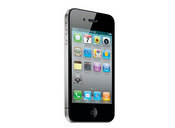Jailbreaking Apple iPhones is legal, government says
 Jailbreaking an Apple iPhone to add unauthorized apps or use an alternative cell provider is officially no longer a government offense.
Jailbreaking an Apple iPhone to add unauthorized apps or use an alternative cell provider is officially no longer a government offense.
The Library of Congress, as part of a regular review of copyright rules, has revised a 1998 position that banned phone owners from bypassing technical locks on the devices. The process, nicknamed jailbreaking, has been used by iPhone owners to buck AT&T Inc.’s exclusivity as the cell carrier for the device.
Apple Inc., which makes the iPhone, had urged that the rules be kept intact. But in a statement Monday on the rule changes, Librarian of Congress James Billington said phone owners who did a workaround on the device were among those who would “not be subject to the statutory prohibition against circumvention.”
The new rules also negate any potential legal arguments from Motorola, Samsung or their companion carriers in response to attempts at prying open software on their phones. For example, the operating system on Motorola’s Droid X cannot be altered, and Samsung’s Captivate can install apps only from the Google and AT&T Marketplace.
Although cutting through manufacturers’ security measures is now legal, such a move would still violate product warranties set by many companies. So if an iPhone locks down after it has been jailbroken — “bricking,” as it’s called — Apple doesn’t have to repair it or provide technical support.
“Apple’s goal has always been to ensure that our customers have a great experience with their iPhone and we know that jailbreaking can severely degrade the experience,” Apple spokeswoman Natalie Harrison said in an e-mail. “As we’ve said before, the vast majority of customers do not jailbreak their iPhones, as this can violate the warranty and can cause the iPhone to become unstable and not work reliably.”
About 4 million iPhone and iPod Touch units had been jailbroken as of last August, and were accessing apps from a sort of black-market storefront called Cydia, the marketplace’s founder told Wired. The store is a haven for many developers that Apple, the gatekeeper to its App Store, has ignored or turned away.
Google Inc., which produces a competing smart-phone platform called Android, was one victim of Apple’s sometimes ambiguous and much lambasted regulation over the App Store.
The Cupertino, Calif., iPhone maker had to respond to an inquiry from the Federal Communications Commission last year regarding why its store would not carry an app called Google Voice. The program lets users reroute phone calls and voicemail through Google’s system for perks such as cheaper international call rates and voicemail transcription. A similar app, not made by Google, that interfaces with the Voice service is for sale through Cydia.
Apple Chief Steve Jobs’ retort: 95% of the 15,000 apps submitted per week are approved within a week.
The new federal exemptions also apply to video games, allowing players to break measures to investigate or fix security flaws. Additionally, educators can circumvent copy protection on DVDs for noncommercial purposes; computer owners may bypass security dongles when they break and cannot be replaced; and blind people may break digital locks on e-books to access read-aloud software.
http://www.latimes.com/business/la-fi-iphone-apps-20100727,0,4385067.story


